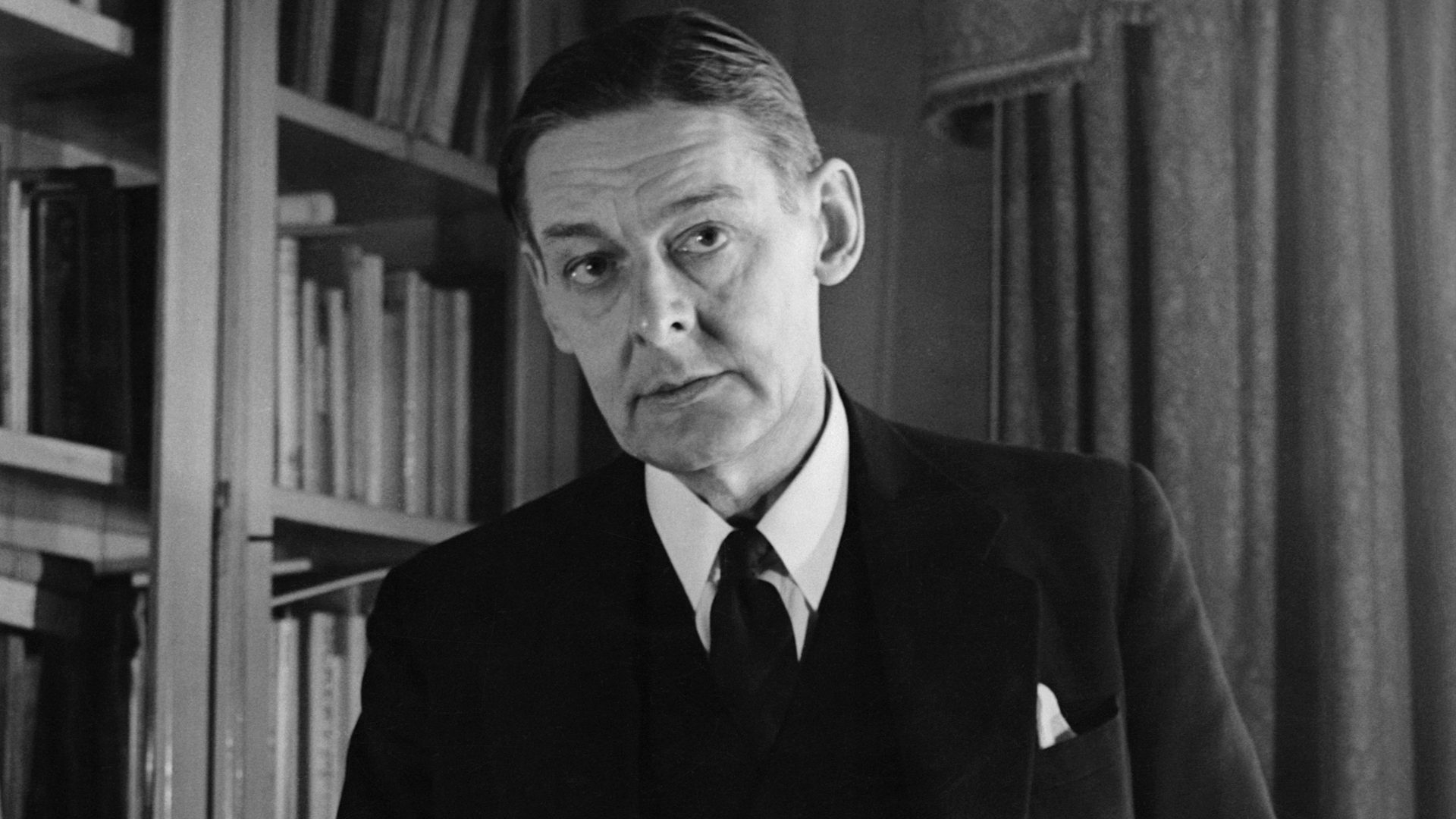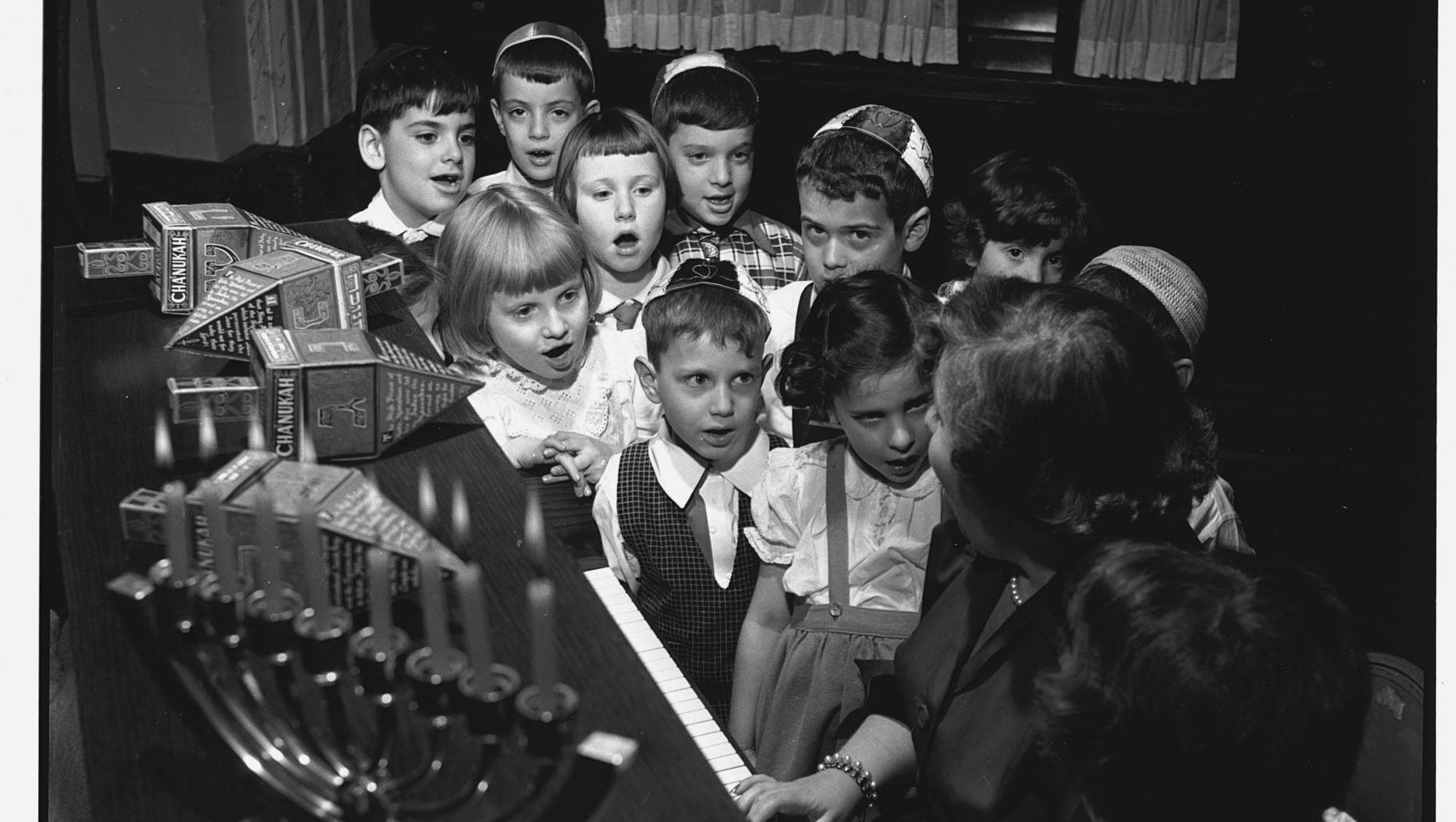The Waste Land is 100 years old almost to the day: how come it’s still the last word in modern poetry?
It’s supposed to be the most incomprehensible poem ever written: how come it’s so popular?
It’s supposed to be the ultimate poem of despair: why is it full of hope?
It’s supposed to be frightfully serious: how come it’s funny?
It’s supposed to be all high culture: how did those pub scenes get in?
It’s supposed to be about the uncertainties of life just after the first world war: how come it’s still relevant?
And it’s all about London, especially the City, where TS Eliot worked at Lloyd’s Bank – how come it’s a great European poem?
Let’s take these questions in reverse order. The poem famously begins “April is the cruellest month”, rejecting spring, the season of life, while longing for winter, the season of death. And then the voices begin. The poem is full of mad voices, and they echo through a reader’s head until it feels like the beginning of breakdown.
The first voice is speaking German, claiming to be German, through and through. However – and this will become a theme – you don’t need to understand that. Now we are in the Hofgarten in Munich and another voice – or is it the same? – is talking about tobogganing while staying with an archduke.
The Waste Land is European before it’s Londonian. Wagner chimes through the poem; the libretto from Tristram and Isolde is quoted twice – in German – before we even reach London. The poem also bursts into French, with Baudelaire’s line addressed to the reader – hypocrite lecteur! We are considering the people on London Bridge at the time: “I had not thought death had undone so many…” which is a touch of Dante and the bridge that leads to hell; Dante later gets two full lines in Italian.
The voices never stop nagging, in English, German, Italian, French and, for that matter, Sanskrit. Eliot’s initial title for the poems was He Do the Police in Different Voices, which is a quotation from Dickens. This is no parochial fidgetiness, no longing for a more sympathetic place, if only I was in Provence: this is a pan-European breakdown, one we can all share. But then there’s a nightingale that “filled all the desert with inviolable voice”: a sudden shaft of loveliness penetrating the despair.
But it’s also a reference to the grimmest story in Ovid’s Metamorphoses, and that’s saying something. Philomela is raped by Tereus, the king and her sister’s husband; he then cuts her tongue out so she won’t tell. But somehow she informs her sister, and in revenge, they serve Tereus with dinner– and it’s his own son. Philomela is then transformed into a nightingale.
The third section seems to be all London and the Thames, but the three Thames-daughters – “Sweet Thames runs softly till I end my song” – are
based on the Rhine-daughters from Götterdämmerung, more Wagner. And then everything starts falling down and Eliot spells it out:
Falling towers
Jerusalem Athens Alexandria
Vienna London
Unreal
Eliot takes us all round Europe and beyond: his frame of reference is vast and includes Sappho, Virgil, Ovid, St Augustine, Dante, Baudelaire, Verlaine and Wagner, among many others. Eliot was born in St Louis in the United States but moved to Europe in pursuit of bigger and wider things. He lived
for a year in Paris; he worked himself out of a writer’s block by composing
poems in French; he rejected the insular; he made himself an exile in order to write big.
The first world war changed everything; that’s a truism of history. The poem tells us something of how it felt at the still point of the turning wheel, the time when the changes were actually taking place and no one knew what would happen next.
But the same thing is true of our own age or any age, and it’s also true for our own lives:
The awful daring of a moment’s surrender
Which an age of prudence can never retract
Eliot’s marriage to Vivien Haigh-Wood has been much written about; she was a profoundly disturbed personality. It was all the most terrible mistake: but as James Joyce wrote in Ulysses – a book Eliot admired tremendously, also celebrating its centenary – “the man of genius makes no mistakes. His errors are volitional and are the portals of discovery”.
Eliot said: “To her the marriage brought no happiness – to me it brought the state of mind out of which came The Waste Land.” The great poet writes his time and it becomes all time. Or to quote Eliot’s great supporter, Ezra Pound, to whom The Waste Land is dedicated: “Literature is news that stays news.”
The poem is full of jokes, not necessarily subtle ones. You can see the hilarity as an aspect of despair or as relief from it. On London Bridge, the narrator stops a passer-by to discuss gardening:
That corpse you planted last year in your garden
Has it begun to sprout? Will it bloom next year?
We have just met Madame Sosostris, a clairvoyant with a rotten cold, and will soon meet Mrs Porter and her daughter, who wash their feet in soda water. There’s even a sex scene in a boat: Eliot, perhaps wisely, changed “perilous canoe” to “narrow canoe”, not wanting the humour to become too Carry On.
This moment is bookended by Wagner and Dante with hints of King Lear and a big reference to St Augustine. But high culture is only one aspect of the poem. A line of the most bitter agony is followed by:
O O O O that Shakespeherian rag
It’s so elegant
So intelligent
There’s a long pub conversation, which is comic and also makes it clear that existential despair is not the preserve of the lettered classes. Nor is hope: some kind of hidden and elusive joy is associated with a public bar in Lower Thames Street, the pleasant whining of a mandolin, and the clatter and chatter from within. This is not a snooty poem. Anyone can despair. It’s hope that’s hard to come by.
Tell me, dear reader, have you ever tried to seize a bar of soap in the bath? It’s beneath the surface, you know it’s there, but it evades capture, never so elusive as when most firmly grasped. Hope in The Waste Land is a bit like that.
It’s there in Lower Thames Street – “O City city, I can sometimes hear…” a line that never fails to ring in my head as I walk through Eliot’s streets near Eliot’s bank. The nightingale’s inviolable voice might bring hope, even after Philomela’s horrors. And:
Who is the third who walks always beside you?
Who indeed? It might be the risen Jesus on the road to Emmaus; it is also a reference to the Antarctic explorer Ernest Shackleton, and the shared hallucination of his exhausted team, who kept thinking there was an extra person in their toiling company.
And perhaps most importantly there is the hyacinth girl, who appears early in the poem, when the poem breaks stride – as it does again and again – and briefly becomes an out-and-out love song; odd for a poem about despair:
‘You gave me hyacinths first a year ago;
‘They called me the hyacinth girl.’
This is followed by a moment of transcendence, the narrator unable to speak:
Looking into the heart of light, the silence
Some have seen this failure to speak as an example of failure, one more
reason to despair – though that doesn’t disqualify it from being also a moment of hope. But from the first time I read it – in the sixth form, when else? – this seemed to be a vision of the ecstasies of love, love beyond desire.
A cache of more than a thousand love-letters that Eliot wrote to Emily Hale has recently come into the public domain. She was “an actor and drama teacher for whom he concealed a lasting love. She was the ‘hyacinth girl… as he told her in a love-letter he wrote eight years later,” Lyndall Gordon writes in her newly published The Hyacinth Girl. In one of the letters, Eliot wrote that hope was a duty: and then he underlined the word.
He knew Hale from his pre-exile days in America, and she lived and worked there still, while Eliot remained stuck in his English marriage. The passage about the Hyacinth Girl ends:
Oed’ und leer das Meer.
Which is more Wagner, more Tristram, and is about separation. The line translates as “Wide and empty is the sea”; you can place an autobiographical meaning on to that if you wish, the Atlantic being pretty wide and empty.
The attractions of romantic pessimism are obvious enough to any sixth-former. “I will show you fear in a handful of dust”, is a thrilling line: you can wonder if the dust is mere valueless infertile waste-matter, or whether it is human remains, dust to dust and all that.
The poem is famously learned and famously incomprehensible. There seem to be a dozen possible meanings in every line, a good few contradictory. It’s full of horrible difficulties. And yet it has for 100 years been hugely popular: not just read because it’s supposed to be a classic, but deeply enjoyed even while it bewilders.
I have two explanations for that. The first is that the poem is full of voices –
and the voices are in Eliot’s head, not yours. There is something exhilarating
in the way this poem – poetry being a medium of communication – basically
tells the reader to fuck off. You don’t have the German, you’ve haven’t read Dante, you can’t follow my logic, you’re not sure about my jokes, you don’t understand my hopes (if any), you haven’t read enough books, you haven’t got enough languages, you’re not up to my agonies – so fuck off.
That rebuff is perversely attractive: you want to break in, be a part of it. One reason is the irrefragable beauty of the lines and the succession of images they bring with them: enthralling as well as baffling. In all 433 lines, the words ring with their own music. The poem clamours to be read: it’s irresistible, overwhelming.
Hold on to that idea of music. The Waste Land is full of Wagner. Eliot loved those enormous sounds and trumpeting themes, but he was perhaps even more enthralled, later on, by Beethoven’s late quartets. His stated ambition was to write such music in words – and he gave us Four Quartets.
So what are these Beethoven quartets about? What do they mean? What is the take-home message of, say, opus 135 in F major? Musicologists can tell us how it’s put together and historians can tell us when: but if you try and isolate something that can be called the meaning you will be no more successful than when you were looking for hope or soap. A friend was discussing The Waste Land with James Joyce: someone who admired the poem but confessed he didn’t really understand it. Joyce asked: “Do you have to understand it?”
The poem is popular not in spite of its difficulties, but because of them. They entice, they fascinate, they frustrate, they illuminate, they enthral. And though The Waste Land at 100 is a classic, it still shocks and disconcerts and bewilders – and continues to do so after 100 readings.
The Waste Land remains shocking: as Ulysses remains shocking, as The Rite of Spring by Stravinsky (another of Eliot’s musical favourites) remains shocking, as Picasso’s cubist paintings continue to disorientate. The Waste Land has existed for 100 years and it is as modern now as it was in 1922. That’s not because of its style, or not just. The reason it is as fresh and as meaningful and as powerful and as popular as ever is simple enough. It’s a bloody marvellous poem.




